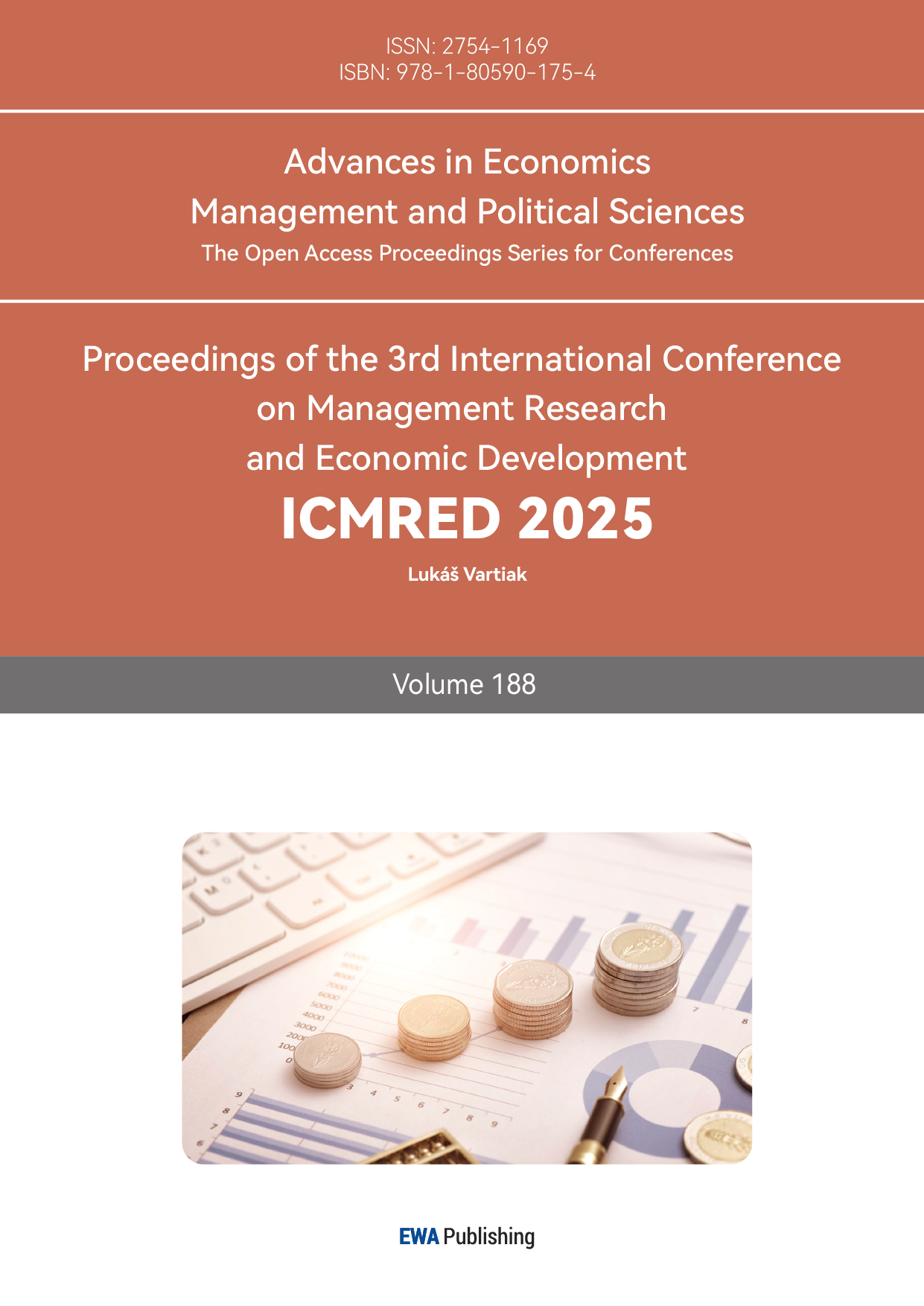References
[1]. Afsar, B., Umrani, W.A. (2020) Transformational leadership and innovative work behavior: The mediating role of intrinsic motivation. Personnel Review, 49(3): 643-662.
[2]. Gao Zhonghua, Xu Yan. Mechanism of employee work reshaping driven by large language models [J]. Journal of Beijing University of Posts and Telecommunications (Social Science Edition), 2024, 26 (02): 1-11.
[3]. Wrzesniewski, A., & Dutton , J. E. (2001) Crafting a job: Revisioning employees as active crafters of their work,Academy of Management Review, 26(2):179-201.
[4]. Liang, X.S. (2012). A Study on the Relationship between Work Cognition, Organizational Commitment, and In-Role Behavior, May 1.
[5]. Hu, R.L., & Tian, X.Z. (2015). Reconstructing Work Identity and Meaning: A Review of Job Crafting Research, October 20.
[6]. Bateman, T.S., Crant, J. M. (1993) The proactive component of organizational behavior : A measure and correlates. Journal of Organizational Behavior, 14(2):103-118.
[7]. Liang, J.Z., Ren, Z.P., Huang, W.Z., &He, Y.F. (2023). China Remote Work Report 2023, May 1.
[8]. Scott Berkun . (2017, December 12). Why Remote Workers Fail.https://scottberkun.com/2017/why-remote-workers-fail/
[9]. Global Workplace Analytics. (2020). The state of remote work in 2020: Environmental and economic impacts.
[10]. Li Yanping, Liao Xin, Yang Yingyao. The "double-edged sword" effect of hybrid work on employee innovation performance in the context of digital intelligence [J]. Science and Technology Progress and Countermeasures.,2024,41(18):119-128.
Cite this article
Zhang,S. (2025). Research on the Impact of Telecommuting on Enterprise Innovation -- Intermediated by Job Reshaping. Advances in Economics, Management and Political Sciences,188,28-36.
Data availability
The datasets used and/or analyzed during the current study will be available from the authors upon reasonable request.
Disclaimer/Publisher's Note
The statements, opinions and data contained in all publications are solely those of the individual author(s) and contributor(s) and not of EWA Publishing and/or the editor(s). EWA Publishing and/or the editor(s) disclaim responsibility for any injury to people or property resulting from any ideas, methods, instructions or products referred to in the content.
About volume
Volume title: Proceedings of the 3rd International Conference on Management Research and Economic Development
© 2024 by the author(s). Licensee EWA Publishing, Oxford, UK. This article is an open access article distributed under the terms and
conditions of the Creative Commons Attribution (CC BY) license. Authors who
publish this series agree to the following terms:
1. Authors retain copyright and grant the series right of first publication with the work simultaneously licensed under a Creative Commons
Attribution License that allows others to share the work with an acknowledgment of the work's authorship and initial publication in this
series.
2. Authors are able to enter into separate, additional contractual arrangements for the non-exclusive distribution of the series's published
version of the work (e.g., post it to an institutional repository or publish it in a book), with an acknowledgment of its initial
publication in this series.
3. Authors are permitted and encouraged to post their work online (e.g., in institutional repositories or on their website) prior to and
during the submission process, as it can lead to productive exchanges, as well as earlier and greater citation of published work (See
Open access policy for details).
References
[1]. Afsar, B., Umrani, W.A. (2020) Transformational leadership and innovative work behavior: The mediating role of intrinsic motivation. Personnel Review, 49(3): 643-662.
[2]. Gao Zhonghua, Xu Yan. Mechanism of employee work reshaping driven by large language models [J]. Journal of Beijing University of Posts and Telecommunications (Social Science Edition), 2024, 26 (02): 1-11.
[3]. Wrzesniewski, A., & Dutton , J. E. (2001) Crafting a job: Revisioning employees as active crafters of their work,Academy of Management Review, 26(2):179-201.
[4]. Liang, X.S. (2012). A Study on the Relationship between Work Cognition, Organizational Commitment, and In-Role Behavior, May 1.
[5]. Hu, R.L., & Tian, X.Z. (2015). Reconstructing Work Identity and Meaning: A Review of Job Crafting Research, October 20.
[6]. Bateman, T.S., Crant, J. M. (1993) The proactive component of organizational behavior : A measure and correlates. Journal of Organizational Behavior, 14(2):103-118.
[7]. Liang, J.Z., Ren, Z.P., Huang, W.Z., &He, Y.F. (2023). China Remote Work Report 2023, May 1.
[8]. Scott Berkun . (2017, December 12). Why Remote Workers Fail.https://scottberkun.com/2017/why-remote-workers-fail/
[9]. Global Workplace Analytics. (2020). The state of remote work in 2020: Environmental and economic impacts.
[10]. Li Yanping, Liao Xin, Yang Yingyao. The "double-edged sword" effect of hybrid work on employee innovation performance in the context of digital intelligence [J]. Science and Technology Progress and Countermeasures.,2024,41(18):119-128.









